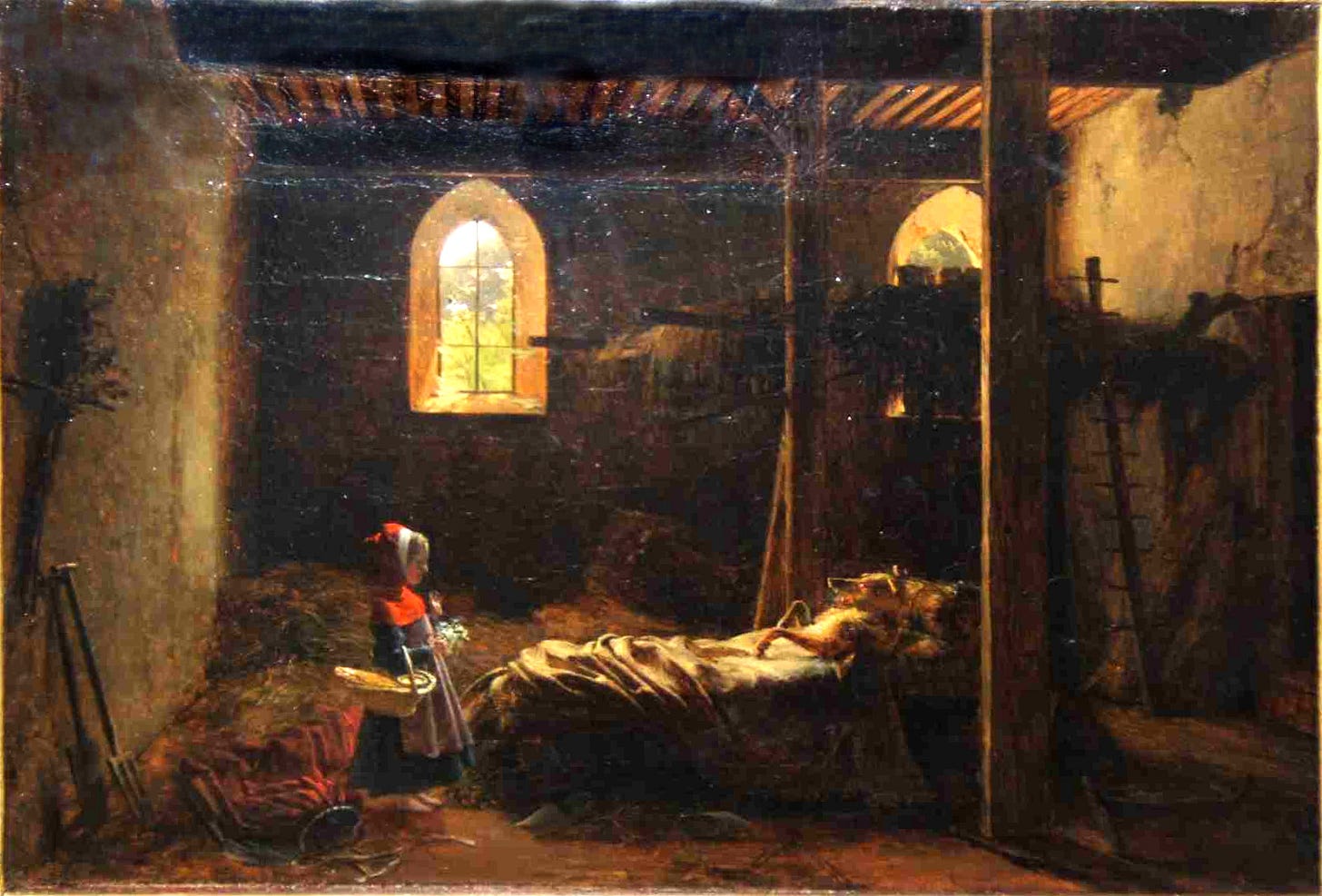Little Red Riding Hood by François Fleury-Richard
This week's poem is from Carol Ann Duffy’s collection The World’s Wife. This book is full of brilliant and hilarious persona poems that give voice to the wives and companions of famous men from history and myth—from Aesop’s wife to "Frau Freud." This particular poem begins with a curious interest in poetry and ends with the powerful idea of poetry as survival. It's one of my favorites by her.
At childhood’s end, the houses petered out into playing fields, the factory, allotments kept, like mistresses, by kneeling married men, the silent railway line, the hermit’s caravan, till you came at last to the edge of the woods. It was there that I first clapped eyes on the wolf. He stood in a clearing, reading his verse out loud in his wolfy drawl, a paperback in his hairy paw, red wine staining his bearded jaw. What big ears he had! What big eyes he had! What teeth! In the interval, I made quite sure he spotted me, sweet sixteen, never been, babe, waif, and bought me a drink, my first. You might ask why. Here’s why. Poetry. The wolf, I knew, would lead me deep into the woods, away from home, to a dark tangled thorny place lit by the eyes of owls. I crawled in his wake, my stockings ripped to shreds, scraps of red from my blazer snagged on twig and branch, murder clues. I lost both shoes but got there, wolf’s lair, better beware. Lesson one that night, breath of the wolf in my ear, was the love poem. I clung till dawn to his thrashing fur, for what little girl doesn’t dearly love a wolf? Then I slid from between his heavy matted paws and went in search of a living bird—white dove— which flew, straight, from my hands to his open mouth. One bite, dead. How nice, breakfast in bed, he said, licking his chops. As soon as he slept, I crept to the back of the lair, where a whole wall was crimson, gold, aglow with books. Words, words were truly alive on the tongue, in the head, warm, beating, frantic, winged; music and blood. But then I was young—and it took ten years in the woods to tell that a mushroom stoppers the mouth of a buried corpse, that birds are the uttered thought of trees, that a greying wolf howls the same old song at the moon, year in, year out, season after season, same rhyme, same reason. I took an axe to a willow to see how it wept. I took an axe to a salmon to see how it leapt. I took an axe to the wolf as he slept, one chop, scrotum to throat, and saw the glistening, virgin white of my grandmother’s bones. I filled his old belly with stones. I stitched him up. Out of the forest I come with my flowers, singing, all alone.
Duffy's work is a great example of how contemporary poetry can be in conversation with the history of English verse. This is what we'll be exploring in my upcoming online poetry workshop, The Deep Roots of English Poetry. During week seven, we'll be writing our own persona poems, just like this one.




